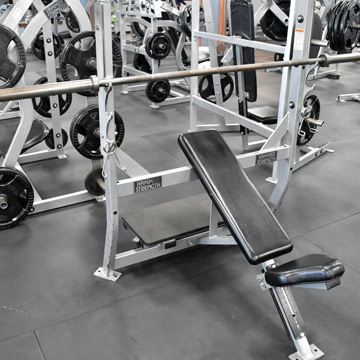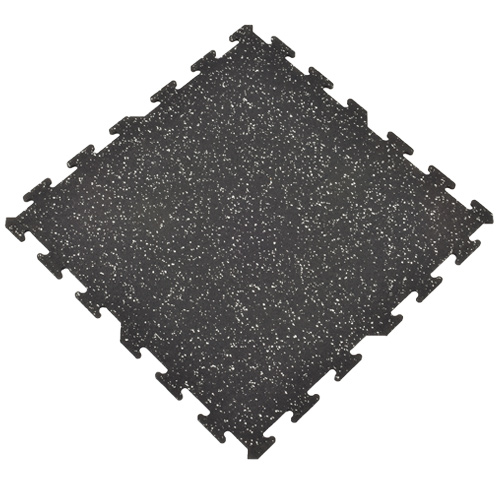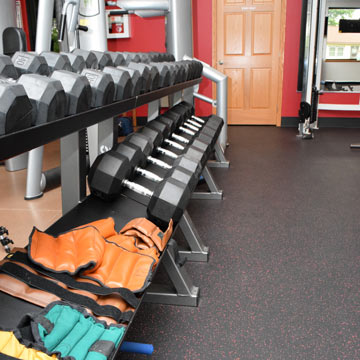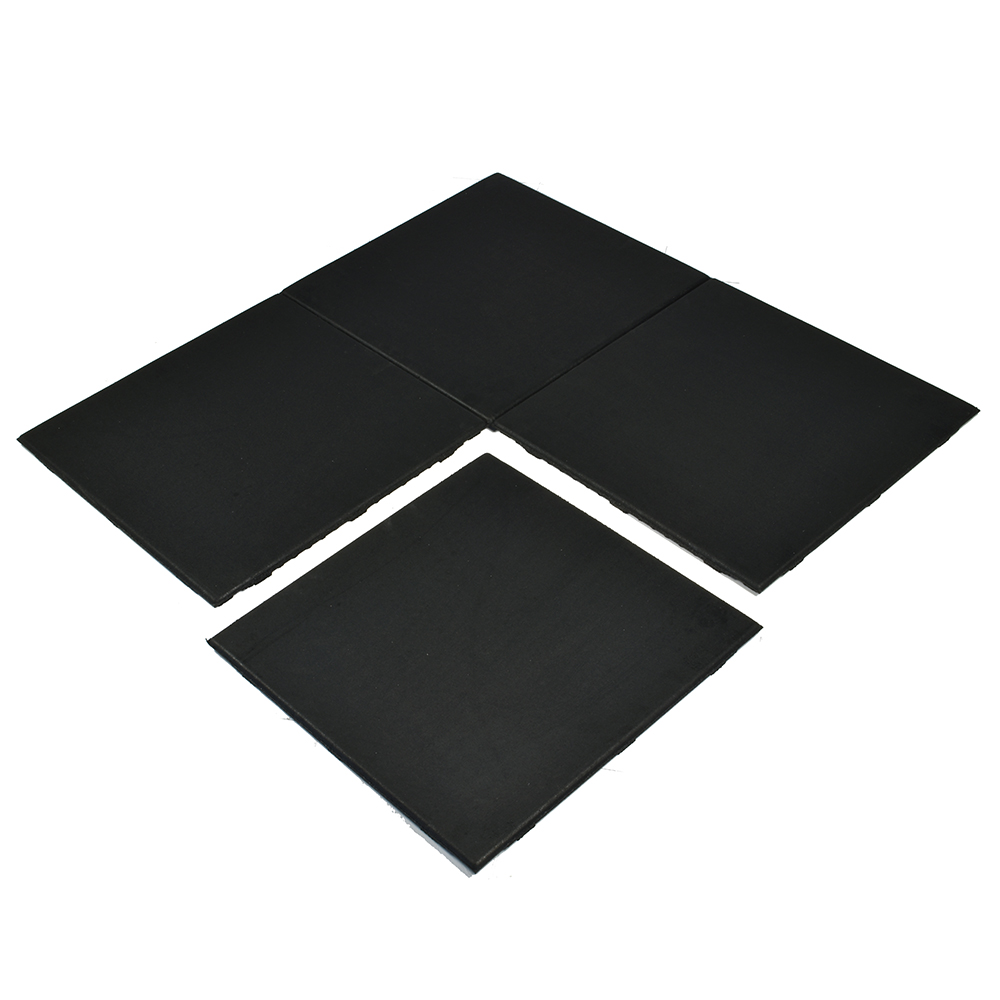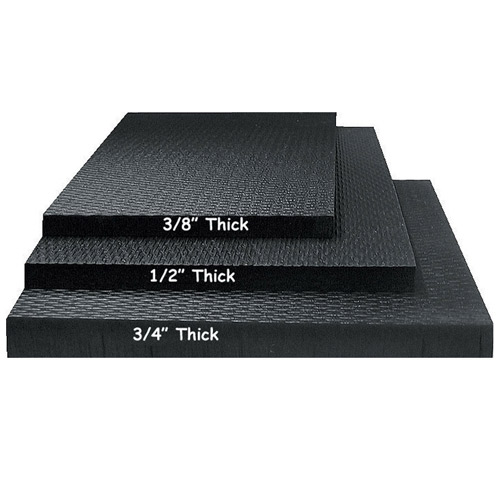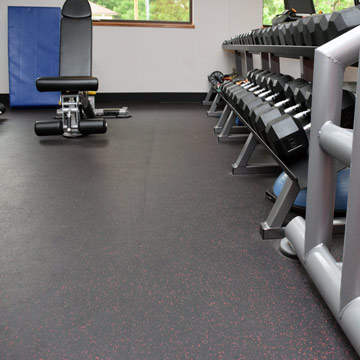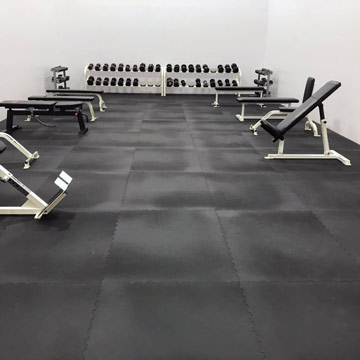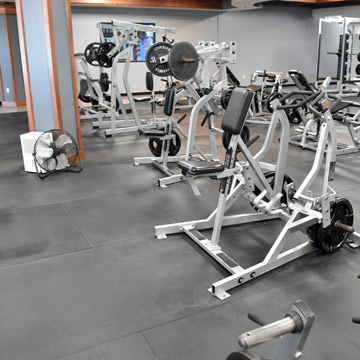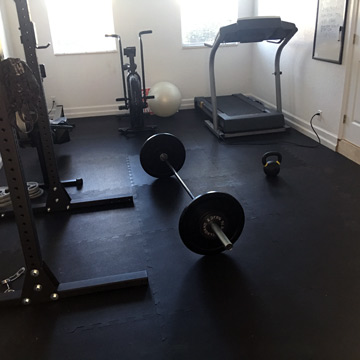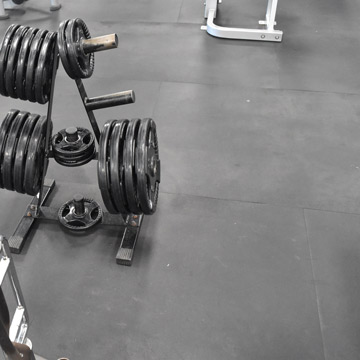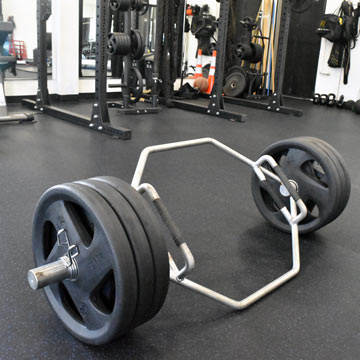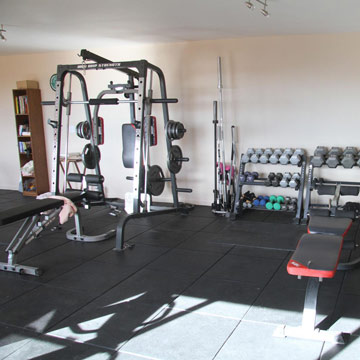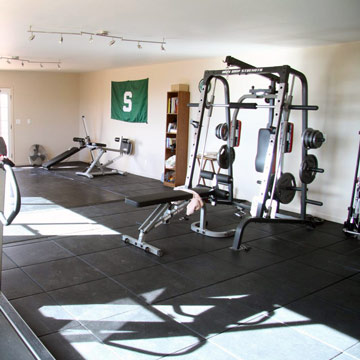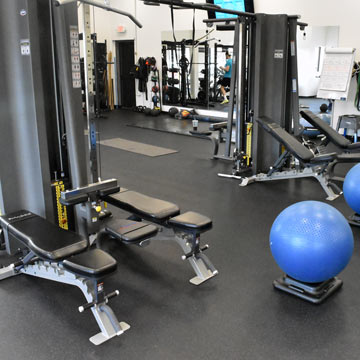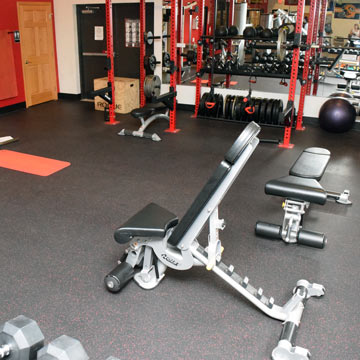5 Best Weight Room Flooring Options
Related Product: Interlocking Rubber Floor Tiles Color 8 mm x 2x2 Ft.
And it's not as difficult or costly as it might sound. All you need to create a home gym for weight training is a little bit of space, the right flooring, and, of course, some weights. The right flooring is a key element. Because heavy weights have a high impact and can bounce back when dropped, it's important to choose a floor that is tough and shock-absorbent. Safety is always a priority, and the proper home gym flooring will help decrease risk. Further, floors should be low-maintenance and easy to clean.
The Best Weight Room Flooring Options
As you explore weight room flooring options, consider the amount of weight that may be dropped on the floor. It’s essential to choose the right gym flooring thickness that will protect your subfloor from the type of weight that will be dropped.Greatmats offers a myriad of home and commercial gym floor solutions that are suitable for a wide range of weights and your various weightlifting needs. Whether you're looking for something permanent to cover a large space or something to just roll out when you need it, these floors will do the job.
1. Interlocking Rubber Floor Tiles
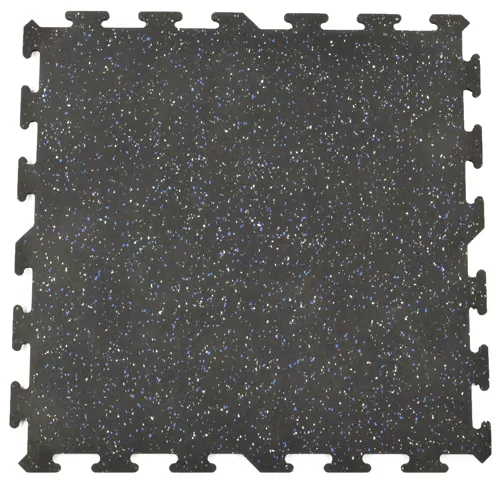
At 8 mm thick, the Interlocking Rubber Floor Tiles are suitable for protecting your subfloor from the occasional dropped free weight. They’re also strong enough to withstand the weight of heavy gym equipment.
The tiles resist alcohol, bleach, disinfectant, sweat, ammonia, and more, so they’re suitable for a commercial gym environment. They have a non-slip surface for safety, and they’re partially non-absorbent for a healthier weight room environment.
Measuring 2x2 feet, the tiles will quickly cover a larger floor. These weight-lifting mats can also be easily cut to fit the space.
2. Rolled Rubber Sport 3/8 Inch Regrind
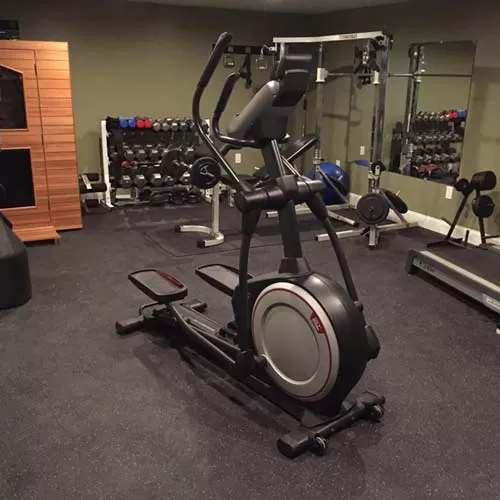
The Rolled Rubber Sport 3/8 Inch Regrind is a durable rubber flooring roll that’s available in custom cut lengths for a simplified installation. The rubber can be installed underneath gym equipment, like your weightlifting setup, and is suitable for commercial fitness use. Smaller installations can be dry laid, while larger installations can be taped or glued down.
Measuring ⅜-inch thick, the commercial rubber flooring is thick enough to protect your subfloor from most dropped weight. It also features a non-slip surface for athlete safety and can help to dampen noise, contributing to a more enjoyable weight room.
This reground second-run flooring is tough and durable, making it a long-lasting choice for your gym.
3. Rubber Flooring Roll Geneva 1/2 Inch Black
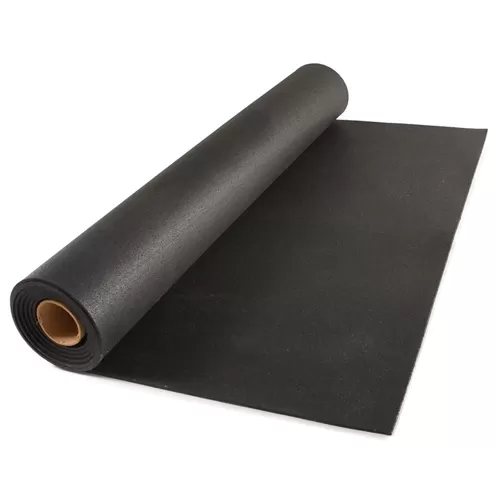
The Rubber Flooring Roll Geneva Black is crafted with 90% post-consumer recycled material, making it an environmentally friendly choice for your weight room. This flooring has a low-odor formulation, so it’s safe to use indoors, and it may even contribute to LEED points.
The rubber flooring roll measures ½ inch thick, so it offers excellent protection to your subfloor against dropped weights. It’s a versatile choice that’s highly durable and is ideal for use in weightlifting areas.
4. UltraTile Rubber Weight Floor
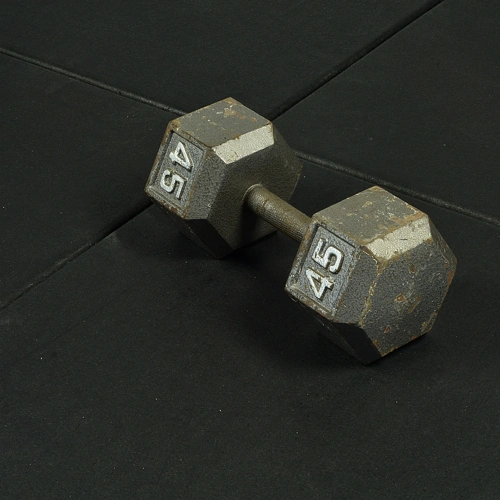
At a full inch thick, the UltraTile Rubber Weight Floor offers superior protection to your subfloor against dropped weights. These exceptionally durable tiles help reduce force and restore energy, and they will be a long-lasting addition to your weight room. The tiles also have the benefit of creating cushioning for athletes while absorbing noise, which can create a more enjoyable workout environment.
Choose these tiles for free weights as well as other workout spaces. The tiles are durable enough to withstand commercial installations, but they’re also made with recycled rubber for an eco-friendly weightlifting floor. They can be installed with a full glue-down method or with a Quad Block system for a floating installation.
5. Sterling Athletic Sound Rubber Tile
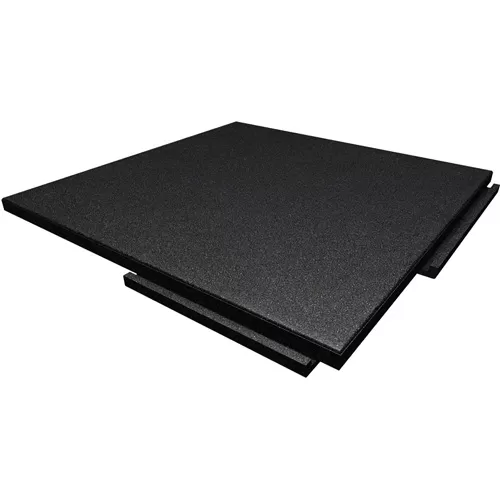
For maximum shock absorption, choose the Sterling Athletic Sound Rubber Tile. These tiles measure a full two inches thick, meaning they deliver superior shock absorption for the heaviest dropped free weights. They feature a unique hollow core construction that helps to further reduce vibration and shock, while the tiles can also reduce sound by up to 38 decibels, a major benefit when you have a busy commercial weight room.
The floor mats feature a wear layer to reduce damage, and they’re also slip-resistant for athlete safety. They’re crafted from 100% recycled rubber, making them an eco-friendly choice for your commercial or home gym.
